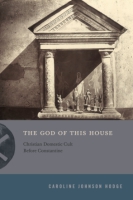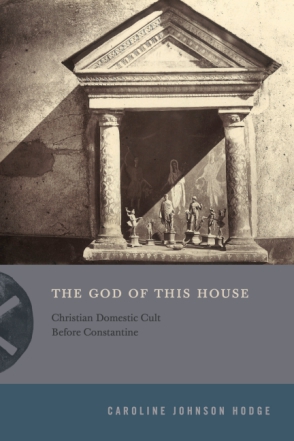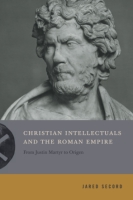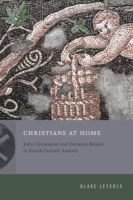The God of This House
Christian Domestic Cult Before Constantine
Caroline Johnson Hodge
“With vividness and clarity, Johnson Hodge directs our attention to the elusive Christian households of the second and third centuries CE. In this formative period, the creative domestic rituals of ordinary people—including women and enslaved persons—prepare the way for the expansion of Christianity in the better-attested decades after Constantine. Highly readable and provocative in the best way.”
- Description
- Reviews
- Bio
- Subjects
Author Caroline Johnson Hodge fills this gap, shifting our attention from liturgical settings to religion as it was lived outside the prescriptions of congregations. Through a careful reading of the material record alongside print sources, Johnson Hodge shows that in the first through the early fourth centuries, Christians developed household rituals akin to traditional domestic cult practices around the Roman Empire, and this continuity contributed to the success of the new cult in the Roman world. Rather than a well-organized, universal domestic cult, Johnson Hodge finds that practices were flexible and varied, ranging widely from established household observances to unauthorized rituals, gravesite venerations, and the unpatrolled movements of women and slaves. Just as important as the official representations were the small gestures at hearths and doorways, the myriad ways in which followers of Christ incorporated their divine beings into the rituals of their households, shops, and tombs.
In bringing the lived-religion approach to bear on this formative period, Johnson Hodge’s study offers a fascinating portrait of a very “pagan” world within ancient Christianity. This book will be especially valuable to religious studies scholars and others interested in the origins of Christianity.
“With vividness and clarity, Johnson Hodge directs our attention to the elusive Christian households of the second and third centuries CE. In this formative period, the creative domestic rituals of ordinary people—including women and enslaved persons—prepare the way for the expansion of Christianity in the better-attested decades after Constantine. Highly readable and provocative in the best way.”
“A remarkable contribution to the scholarly literature.”
Caroline Johnson Hodge is Associate Professor of Religious Studies at College of the Holy Cross. She is the author of If Sons, Then Heirs: A Study of Kinship and Ethnicity in the Letters of Paul and coeditor of “The One Who Sows Bountifully”: Essays in Honor of Stanley K. Stowers.
Also of Interest
Mailing List
Subscribe to our mailing list and be notified about new titles, journals and catalogs.






